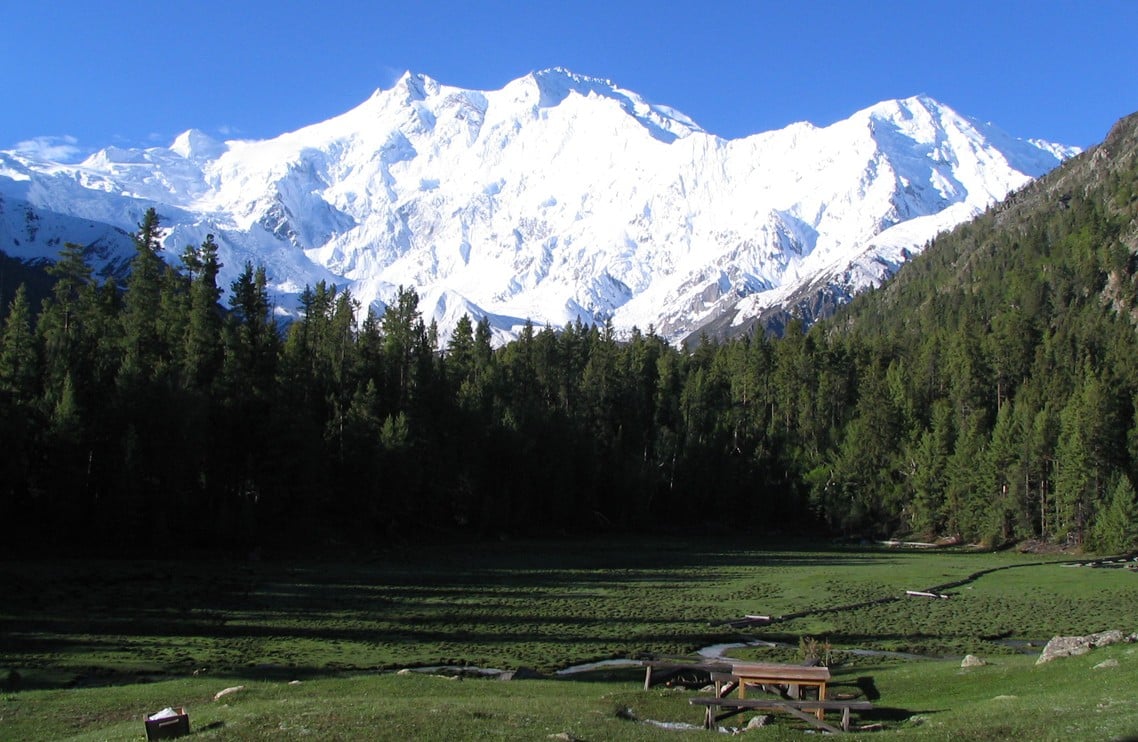
Proper planning and management of the bio-ecological resources is imperative for development

The emerging threat of climate change would also have negative impacts on biodiversity ultimately impairing the sustainable development processes and initiatives. The link between climate change and biodiversity has been recognised also within the United Nations Framework convention on Climate Change (UNFCCC) and the Convention on Biological Diversity (CBD).
Unexpected climatic conditions over time through storms, cyclones, floods, and diseases would affect food security and cause heavy losses to biodiversity and human lives. In such a case resources for sustainable development will be diverted to cope with the unwanted situations and rehabilitation initiatives instead.
However, unsustainable development takes its toll upon biodiversity in which case sustainable development cannot be achieved. Apart from this, greed and illegal trade for monetary gains also disrupts the natural processes.
Biodiversity, serving as the entire spectrum of life, is the vital insurance of mankind on planet earth whose sustainable use ensures sustainable development of a region.
Pakistan, endowed with a wide variety of ecosystems, habitats, diversified flora and fauna, unfolds opportunities due to its biodiversity by contributing towards sustainable development of the poor people in local communities who are living in an environment rich with natural resources. But the threats posed to biodiversity are least taken into account.
Save conservationists, nature lovers, environmentalists, and to some extent academia, for others biodiversity is just merely a word to write or utter. Therefore, the precious biodiversity lot is silently slipping from the natural canvas which has not earned much attention from the general masses owing to least understanding of the vital role of biodiversity and thereby diminishing the prospects of sustainable development whose consequences extend from local to national level.
The Convention on Biological Diversity, the landmark result of the Earth Summit held in Rio de Janeiro in 1992, has been instrumental in bringing international focus on the sustainable use of biodiversity and the threats posed to biodiversity due to poaching, trade, deforestation, habitat loss, lack of awareness, and inadequate planning. However, proper planning and management of the bio-ecological resources can set a pathway of sustainable development for a developing country like Pakistan. In order to promote sustainable development, resource mobilisation and partnership with a country like Pakistan is one of the pressing needs.
The theme of this year celebration -- Sustainable Development -- sheds light on how to achieve the sustainable development goals for mainstreaming of biodiversity as part of the United Nations Post-2015 development agenda for the period of 2015-2030. Moreover, the Strategic Plan for Biodiversity 2011-2020 and the Aichi Biodiversity Targets also focuses on biodiversity conservation and development.
With the potential to uplift cultures and local economies through sustainable development opportunities, biodiversity is a key element to poverty alleviation as it provides indispensable goods and services including timber, food, medicine, climate and water regulation, fiber besides recreational and aesthetic values.
Effective management of biodiversity would help shape the development pathways of a country. However, in pursuit of socio-economic gains biodiversity becomes victim of neglect, overexploitation, and degradation with the passage of time. There is need to promote economic growth and social development without causing irreparable loss to biodiversity and the environment.
The role of biodiversity in global and local economies is also critical such as fisheries, forest, wildlife, ecotourism, and agriculture. Around the world about 180 million people are directly or indirectly employed in fisheries and aquaculture. Nearly 80 per cent of the population in Asian and African countries depends on traditional medicines for healthcare.
According to an estimate about 1.3 billion people across the world depend for their livelihood on biodiversity and ecosystem goods and services. This is how biodiversity contributes towards development of an area or region provided that wise use of resources is ensured over time which is the overarching requirement for sustainable development at large.
Prioritisation of biodiversity is crucial in developmental strategies as the poor primarily depend on the goods and services obtained from biodiversity. By complying with the Millennium Development Goals development and poverty alleviation could be achieved by managing biodiversity through stringent policies and long term plans in place.